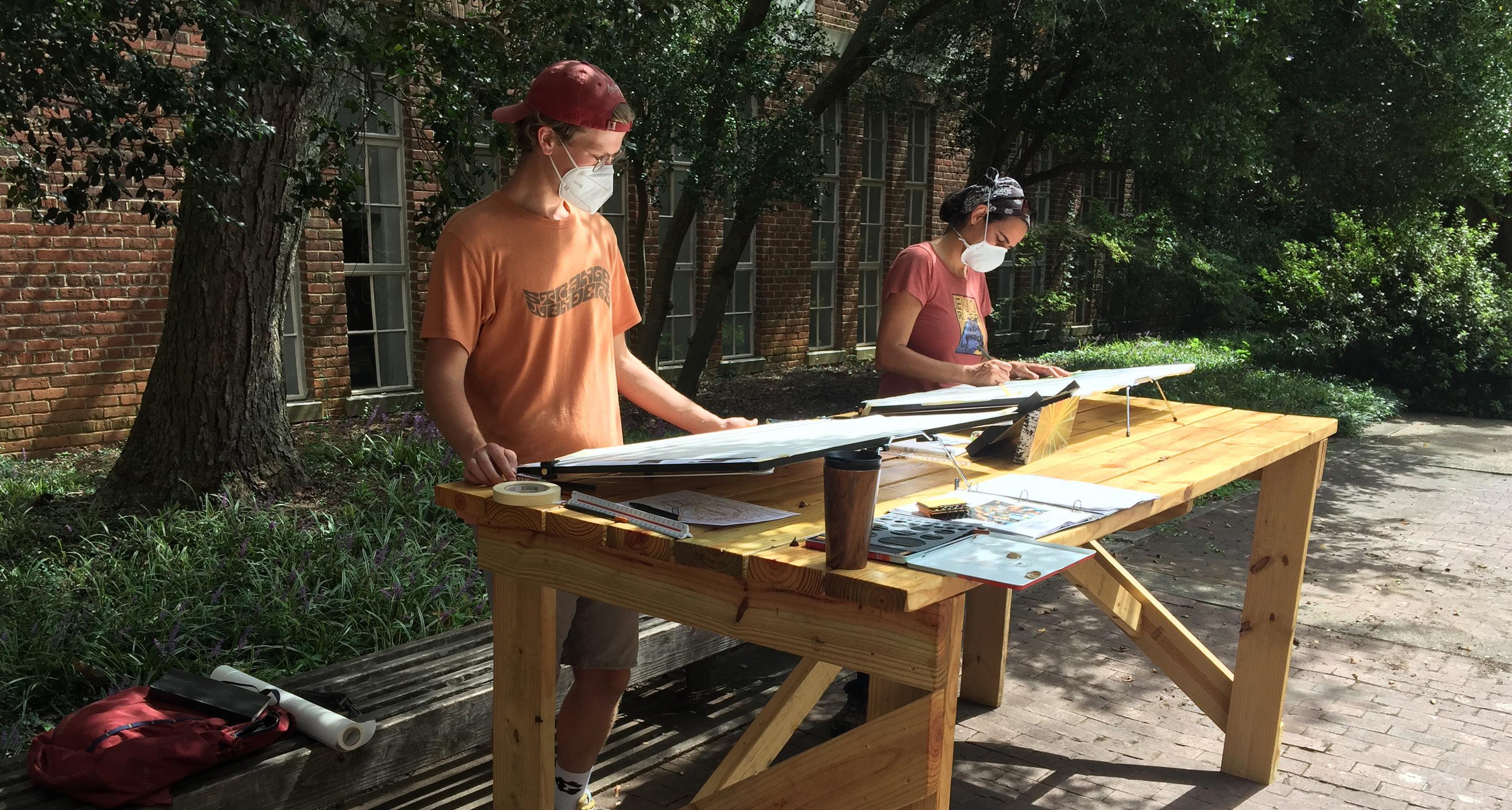P R O G R A M D O C T O R
O F
D E S I G N
DDes Student Designs Learning Assessments for Deaf Children B y B re nt Wi nte r
When user experience designer AJ Polanco decided to advance his career by earning a doctoral degree, his search for the perfect opportunity led him to become part of the first cohort of eight students to enroll in the College of Design’s brand-new Doctor of Design program in 2018. Polanco is an acting associate program director at Educational Testing Service, where he leads the UX team designing the National Assessment of Educational Progress for students in fourth, eighth and 12th grades. His research in the D.Des. program focuses on developing best practices for designing digital assessments for deaf or hard-of-hearing students. “I already have a lot of professional design experience,” Polanco explains, “so I don’t need a program that focuses too much on hands-on craft. My opportunity to grow as a professional is to work on my research aptitude, and this program has a very strong research emphasis.” A New Degree Program The D.Des. is an advanced degree program for established design practitioners. Applicants must hold a master’s degree, and at least one of their degrees must be from an accredited program in design, fine arts or an equivalent field. The college’s D.Des. program is one of only four such programs in the United States, and the only one featuring a blended-learning model combining online instruction with immersive on-campus workshops.
Above: Expectant range design strategies from DHH and assessment-expert designers (blue). The named datapoints do not represent the usabillity or accessibility of the referenced literature, but rather the solutions that were inspired by them.
6
| N C State Universit y College of Design
| design.ncsu.edu
“Another advantage of this program is the online component,” Polanco says. “I needed a program that would satisfy my design interests and help me achieve my career goals but that would also fit into my overall life. The D.Des. program checks all those boxes.” The program was founded to meet the lifelong learning needs of practicing professionals, says M. Elen Deming, director of the program.













